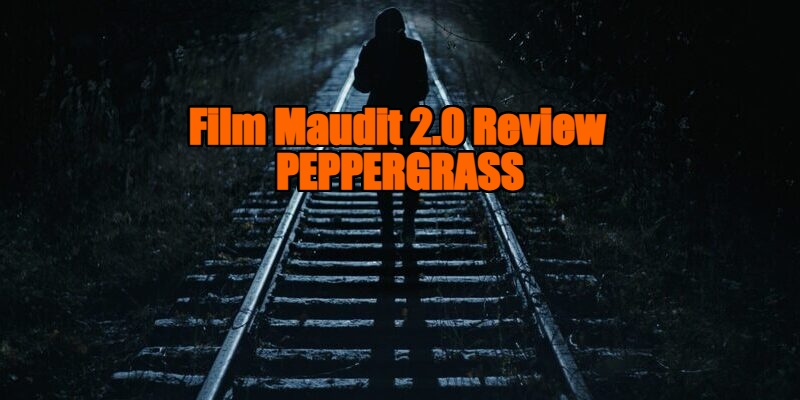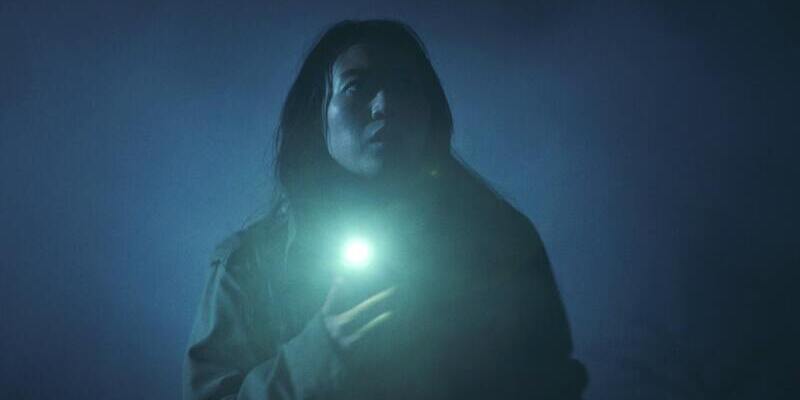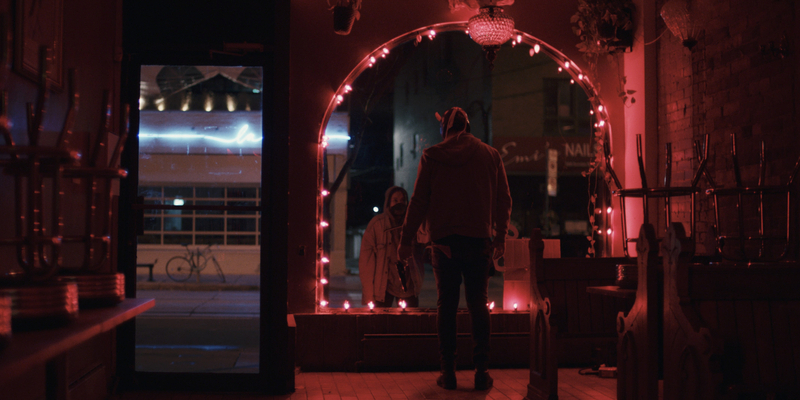
Review by
Eric Hillis
Directed by: Steven Garbas, Chantelle Han
Starring: Chantelle Han, Charles Boyland, Michael
Copeman, Craig Porritt, Philip Williams

A year ago I hadn't given so much as a second thought to the truffle
industry. Then came the Nicolas Cage vehicle
Pig, which boasted the much-ridiculed actor's finest performance in
decades. That movie takes us deep into the underworld of the restaurant
business and the ruthlessness employed by some to get their hands on
rare truffles. It seems we may have an emerging "truffle-thriller"
sub-genre, as directors Steven Garbas and Chantelle Han's
Peppergrass similarly portrays the deadly world of the
truffle trade.

Co-director Han also takes the lead role of Eula, a pregnant
restaurateur who like so many in the hospitality trade is struggling to
stay afloat amid the pandemic. The movie takes place during one of the
more draconian lockdowns of the past couple of years, with all Canadian
restaurants forced to close their doors and live on the scraps of
takeout. As Eula tells fellow restaurateur and fuck buddy Morris (Charles Boyland), she's making just $40 a day.
Possible salvation for the pair comes when Eula's grandfather passes
away and leaves his war medals to Eula to pass onto his old army buddy
Reuben (Michael Copeman), who now lives as a hermit in the
distant woods. Eula remembers how as a child her grandfather and Reuben
would take her truffle hunting, and she plans to exchange her
grandfather's medals for some of Reuben's much sought after white
truffles. Her big mistake is enlisting the aid of volatile cokehead
Morris, who packs a pistol and a Mexican wrestling mask for the trip.
Red flags much?

Peppergrass plays like a reverse Deliverance, with the city slickers posing a threat to rural folk. COVID hasn't
reached the patch of rural Canada where Reuben resides, and the few
people Eula and Morris meet panic in their potentially contaminated
presence. It also follows the tropes of classic hicksploitation movies
and even has the classic scene where some old codger (Craig Porritt) warns them not to venture any further.
Garbas and Han take a commendable risk in presenting us with a pair of
protagonists who are far from likeable. We might be able to get on board
with Eula's deception due to her tough predicament, but Morris is such a
broadly drawn obnoxious asshole that it's impossible for us to care
about him when the pair eventually find themselves in trouble. There's
also the small matter that the film posits Reuben as the villain when he
hasn't actually done anything wrong beyond defending himself from a pair
of intruders out to swindle him.

The first half of the movie, a sort of Truffles of Sierra Madre, leans
knowingly into its genre tropes to create a sufficiently tense
atmosphere. It's when the movie becomes a
Revenant-esque survival thriller in the second half that the movie loses its
energy. Left alone in the woods with Reuben potentially giving chase,
Eula never seems to sufficiently struggle with the sort of hardships
someone left to survive the freezing forests of Canada would presumably
encounter. A forest is a troublesome setting for a chase thriller,
as given the homogenous terrain, it's difficult for a director to
establish the geographical distance between the hunter and the hunted.
It's never made clear whether Reuben is 20 metres or 20 miles away from
Eula, if he's even on her tail at all, and so there's little of the
suspense you might expect from this sort of set-up.


